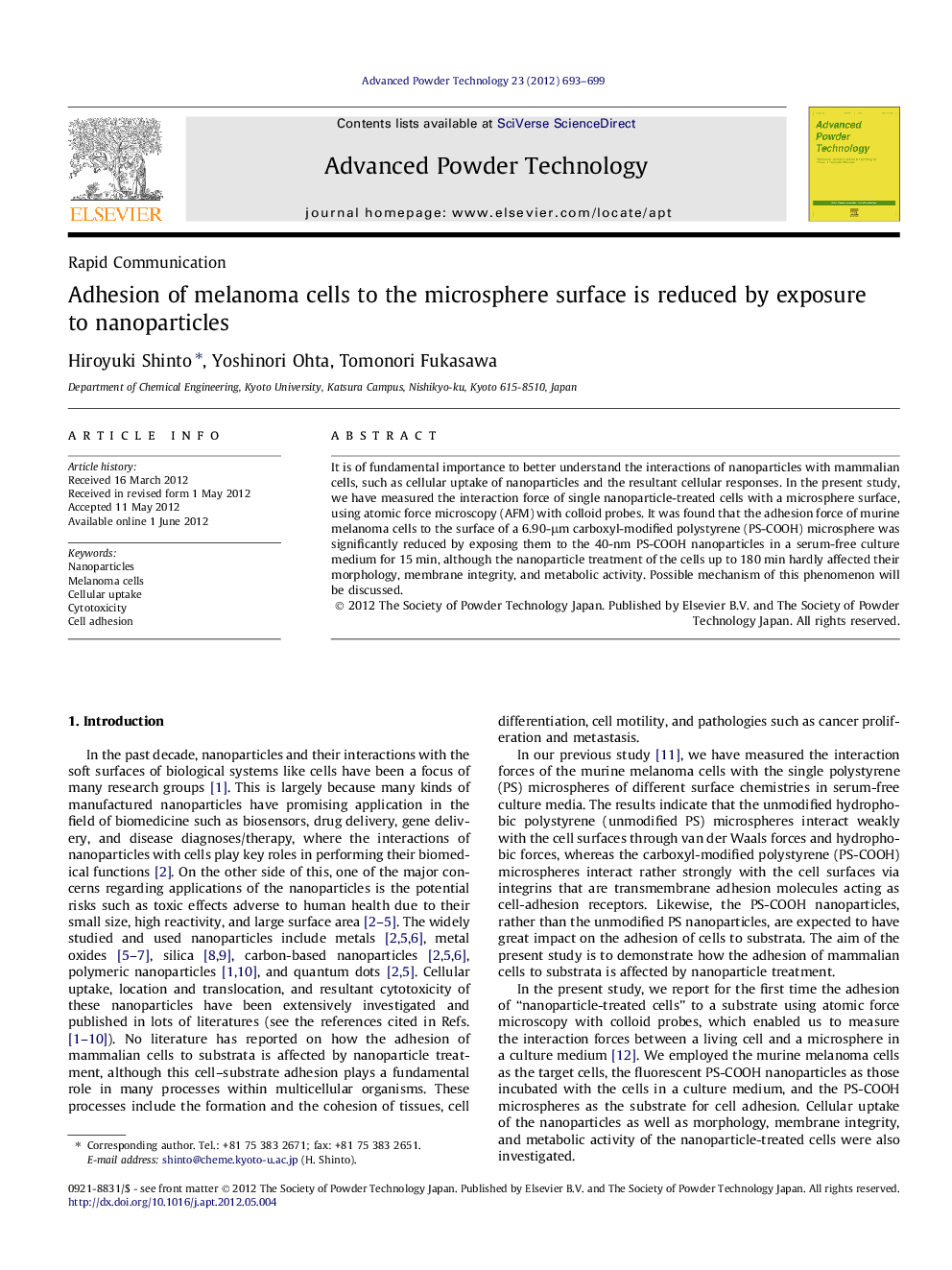| Article ID | Journal | Published Year | Pages | File Type |
|---|---|---|---|---|
| 144253 | Advanced Powder Technology | 2012 | 7 Pages |
It is of fundamental importance to better understand the interactions of nanoparticles with mammalian cells, such as cellular uptake of nanoparticles and the resultant cellular responses. In the present study, we have measured the interaction force of single nanoparticle-treated cells with a microsphere surface, using atomic force microscopy (AFM) with colloid probes. It was found that the adhesion force of murine melanoma cells to the surface of a 6.90-μm carboxyl-modified polystyrene (PS-COOH) microsphere was significantly reduced by exposing them to the 40-nm PS-COOH nanoparticles in a serum-free culture medium for 15 min, although the nanoparticle treatment of the cells up to 180 min hardly affected their morphology, membrane integrity, and metabolic activity. Possible mechanism of this phenomenon will be discussed.
Graphical abstractFigure optionsDownload full-size imageDownload as PowerPoint slideHighlights► Uptake of nanoparticles in melanoma cells and cellular responses were investigated. ► Cell adhesion to the microsphere surface was reduced by exposure to nanoparticles. ► Morphology, membrane integrity, and metabolic activity of cells were hardly affected.
